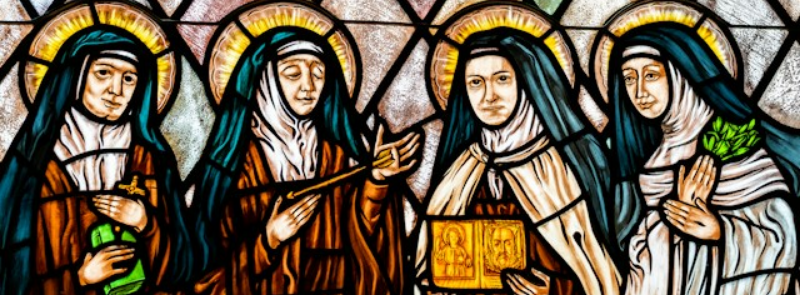
When It Occurs
Every November 1st
Timeline
Days Passed (844)
# Hashtags
#AllSaintsDay #RomanCatholic
All Saints Day on November 1 holds religious significance in the Western Christian tradition, observed by the Roman Catholic Church, the Methodist Church, the Lutheran Church, and others. The purpose is to pay homage and reverence to both canonized and unknown saints. In some faiths, it also involves expressing gratitude to those who have guided others to Christ, such as friends or relatives. All Saints' Day incorporates various traditions globally, including placing flowers on graves on November 1 and the Mexican Day of the Dead, which honors departed children on the holiday's first day. Additionally, Halloween in the U.S. and Canada, originally connected to All Saints' Day, has become a distinct celebration.
History
- Origins: The origins of All Saints Day date back to the early Christian Church. The celebration began as a way to honor martyrs who died for their faith. In 609 AD, Pope Boniface IV consecrated the Pantheon in Rome to the Virgin Mary and all martyrs, establishing May 13 as the Feast of All Martyrs. Later, in 835 AD, Pope Gregory IV moved the celebration to November 1st and expanded it to include all saints.
- Growth: Over the centuries, All Saints Day has evolved to include the recognition of all saints, both canonized and unknown, who have made significant contributions to the faith and serve as spiritual role models for believers.
Significance
All Saints Day holds significant importance for several reasons:
- Honoring Saints: It provides an opportunity to honor and remember the lives and contributions of saints who have lived exemplary lives of faith and devotion.
- Spiritual Reflection: It encourages believers to reflect on their own lives and aspire to the virtues exemplified by the saints.
- Community Worship: It fosters a sense of community among Christians as they come together in prayer and worship to celebrate the lives of the saints.
Traditions and Observances
-
Church Services:
- Mass and Worship: Many Christian denominations hold special church services or Masses on All Saints Day. These services often include readings from the scriptures, hymns, and prayers dedicated to the saints.
- Litany of the Saints: In some churches, a Litany of the Saints is recited or sung, invoking the names of saints and asking for their intercession.
-
Visiting Cemeteries:
- Graveside Prayers: It is a common practice for families to visit the graves of deceased loved ones on All Saints Day. They may clean and decorate the graves with flowers and candles and offer prayers for the souls of the departed.
- Cemetery Blessings: Some churches organize cemetery blessings, where a priest or minister leads a service at the cemetery, blessing the graves and offering prayers for the deceased.
-
Special Meals and Gatherings:
- Family Gatherings: Families often gather for a special meal to commemorate All Saints Day, sharing stories and memories of deceased loved ones and saints who have inspired them.
- Traditional Foods: In some cultures, traditional foods are prepared and enjoyed in honor of the saints, such as "soul cakes" in England or "panellets" in Spain.
-
Educational Activities:
- Learning About Saints: All Saints Day is an excellent opportunity for educational activities, such as reading about the lives of various saints, discussing their contributions to the faith, and understanding their significance.
- Crafts and Projects: Children can participate in crafts and projects related to All Saints Day, such as making saint-themed decorations, creating saint costumes, or drawing pictures of their favorite saints.
Fun Facts About All Saints Day
- Holy Day of Obligation: In the Roman Catholic Church, All Saints Day is considered a Holy Day of Obligation, meaning that Catholics are required to attend Mass.
- Global Observance: While All Saints Day is celebrated worldwide, the customs and traditions associated with the day can vary significantly from country to country.
- Connection to Halloween: All Saints Day is preceded by Halloween (All Hallows' Eve), which has its origins in the ancient Celtic festival of Samhain and was later influenced by the Christian tradition of All Hallows' Eve.
Inspirational Quotes About Saints
- "The saints were not superhuman. They were people who loved God in their hearts, and who shared this joy with others." – Pope Francis
- "Saints are the sinners who keep on trying." – Robert Louis Stevenson
- "Holiness consists simply in doing God's will, and being just what God wants us to be." – St. Thérèse of Lisieux
Conclusion
All Saints Day is a significant Christian holiday that honors the lives and contributions of saints who have exemplified faith and virtue. Whether through attending church services, visiting cemeteries, gathering with family, or engaging in educational activities, there are many ways to observe this special day. All Saints Day encourages believers to reflect on their own spiritual journeys, draw inspiration from the saints, and celebrate the sense of community and continuity in their faith.


